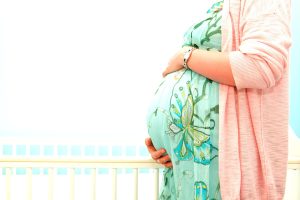Equality in the workforce would be impossible without proper acknowledgement and accommodations for employees who are pregnant or nursing. The inherent physical demands of the condition were long used an excuse to discriminate against these workers. Then in 1978, the federal government passed the Pregnancy Discrimination Act, making it illegal for employers with 15+ employees to discriminate against women because of pregnancy, childbirth, abortion, or any medical conditions related to pregnancy and childbirth. (Applicable medical conditions can include things like severe morning sickness, post-partum depression, gestational diabetes, preeclampsia, pregnancy-induced hypertension, loss of a pregnancy, etc.)
Now, as our Los Angeles pregnancy discrimination lawyers want to make sure everyone’s heard about two much more recent federal protections in place for pregnant and nursing workers. These are:
The PUMP Act
Effective as of December 29, 2022, the Providing Urgent Maternal Protections for Nursing Mothers Act expands protection for breastfeeding employees. The law requires most employers to extend reasonable breaks for breastfeeding employees to express milk for their new baby. This accommodation must be granted for one full year after the birth of the child. During these breaks, the employee will not be expected to carry out any work-related duties. However, if the worker is paid hourly and does not work while pumping, the employer is not required to pay for that time.
Furthermore, the area designated for nursing employees must be private, free of intrusion – and not a bathroom.
Although the act technically applies to all employers no matter what size. However, if the employer has fewer than 50 employees, it may file for an exemption to the requirement. To prevail, the employer would have to prove that compliance would result in undue hardship for the company – and the employer would bear the burden of proof. There are also industry-specific exceptions, such as airline and railroad industries.
PWFA
The Pregnant Workers Fairness Act, now part of Title VII of the Civil Rights Act of 1964, went into effect June 27, 2023. It’s applicable to employers with 15+ employees. It requires employers to extend reasonable accommodations in the event a pregnant employee experiences limitations as a result or related to pregnancy, childbirth, or any related medical condition. While you might be required to provide a doctor’s note, companies can only deny these requests if they can prove that granted the accommodation would result in “undue hardship.”
As recently outlined in the U.S. Supreme Court case of Groff v. DeJoy, “undue hardship” goes beyond a de minimis burden. Employers asserting undue hardship bear the burden of proving the accommodation would result in substantial increased costs and other significant impacts in the overall context of the employer’s business.
Some examples of possible accommodations a pregnant employee might seek under the PWFA:
- More breaks for resting, sitting, drinking water, eating, or using the restroom.
- Hours that are flexible to allow for conditions like morning sickness or to attend doctor’s appointments.
- Restrictions on heavy lifting.
- Designated parking that is closer to the building.
- Excuse from activities that are strenuous or compounds that are risky.
 Orange County Employment Lawyers Blog
Orange County Employment Lawyers Blog










